Street basketball, which emerged in the early 20th century in the United States, quickly spread across the globe, becoming the ultimate stage for young athletes to showcase individual skills and teamwork. In Taiwan, 3×3 basketball has become a common sight in parks and courts across the country, evolving into an integral part of urban culture. With the rise of international 3×3 basketball events, Taiwan’s street basketball scene has found an opportunity to step onto the world stage.
In 2007, the International Basketball Federation (FIBA) established a dedicated department to promote 3×3 basketball, officially including it in the Olympics in 2020, drawing worldwide attention. With its fast-paced, compact matches and its roots in street culture, 3×3 basketball quickly gained traction as a new force in global sports, even being hailed as a modern innovator in the game of basketball. The impact of 3×3 has grown beyond the confines of street sports, becoming a global phenomenon that not only advances sports culture but also fosters commercial opportunities. Taiwan, in particular, has seen unprecedented prospects at the crossroads of culture, sports, and business as part of this global trend.
Against this backdrop, Michael Wu, Chairman of Wanbao Marketing, has partnered with Cheng Chih-Lung, known as the “Doctor of Basketball,” to propel Taiwan’s 3×3 basketball onto the international stage. In an interview with《The Icons》, Michael Wu shared:
“Our goal is to raise awareness of 3×3 basketball in Taiwan. While 5-on-5 basketball has its place, 3×3 is better suited for Taiwan to shine in international competitions. Beyond our efforts, we hope to inspire more entrepreneurs to join us in changing public perceptions of basketball, encouraging greater participation in the sport.”
Michael Wu’s Basketball Dream: From Business Tycoon to 3×3 Basketball Champion
As a rising force in Taiwan’s basketball culture, Michael Wu comes from an unconventional background. Raised abroad, he holds multiple degrees and has amassed extensive experience in management within his family’s diverse business empire, which spans industries from infant products to vehicle parts and healthcare, with significant influence in international markets. Yet, Wu wasn’t content to rest on his laurels. Driven by a personal mission, he aims to introduce more diverse cultural and commercial elements to Taiwan, accelerating its path to internationalisation.
“We chose 3×3 basketball because it not only embodies the freedom and innovation of street culture but also has the potential to shine on the global stage,” Wu explained. “3×3 basketball appeals to people of all ages. Compared to traditional 5×5 basketball, it requires fewer resources, yet its impact is undeniable.” Wu has long been devoted to promoting 3×3 basketball, not only because of its rapid global rise but also due to its unique format and strategic advantages, which align closely with the strengths of Taiwan’s basketball scene.
Unlike 5-on-5 basketball, 3×3 places greater emphasis on speed, flexibility, and versatility – attributes in which Taiwanese players excel, making it easier for them to stand out in international competitions. “The pace of a 3×3 match is incredibly fast – a game can be decided in just over ten minutes. This high-intensity format gives us more opportunities. Unlike 5-on-5, 3×3 doesn’t require towering players; it’s about being well-rounded and quick to react, which gives Taiwanese players a competitive edge on the global stage,” Wu noted.
To push 3×3 basketball onto the international platform, Wu has teamed up with Cheng Chih-Lung, known as the “Doctor of Basketball.” Together, they are committed to elevating Taiwan’s international standing in the sport:
“Partnering with Cheng Chih-Lung to promote 3×3 basketball is a critical step in our international ambitions, significantly boosting Taiwan’s position in the sport. Through this collaboration, we not only hope to bring Taiwan’s 3×3 basketball to the global arena but also to change public perceptions of the game, inspiring more young people to get involved and making the sport more widespread in Taiwan.”
Wu emphasises that Taiwan already has a solid foundation in 3×3 basketball, making it well-positioned to quickly integrate into international competitions and enhance its exposure and opportunities. “3×3 basketball is highly unpredictable and entertaining, making it a perfect fit for the Taiwanese market. With minimal investment, we can achieve substantial international influence through this sport,” he said. Wu also sees great commercial potential in 3×3 basketball, viewing it not just as a sport, but as a platform for promoting Taiwan’s basketball culture and facilitating international exchange.
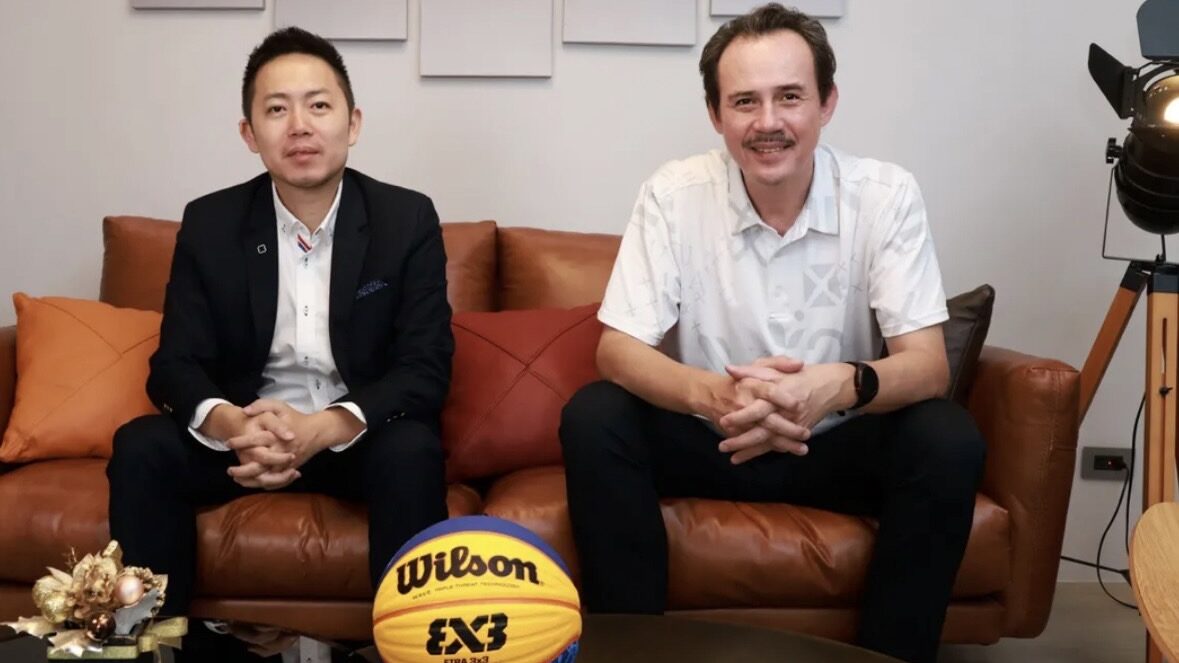
Olympic Dreams: The Dual Challenges of the Ranking System and International Competition
Michael Wu understands that achieving the goal of competing in the Olympics is no easy feat. The Olympic ranking system requires teams to participate in enough international events to accumulate points, posing a significant challenge for the team’s preparation and strategy.
“We need to carefully select tournaments, not just based on their quality but also on how they maximise our points. That’s why our strategy focuses on high-point events such as the FIBA 3×3 World Tour and the FIBA 3×3 World Cup, ensuring we perform well in each competition,” Wu explained. He emphasised that this strategy requires not only consistent team performance but also meticulous planning and execution.
Formed in 2024, Taiwan’s first international 3×3 professional team, 3X3 Taipei Wanbao, currently ranks 38th globally. Wu views this as just the beginning of a much larger goal:
“Our international performance has already gained some recognition, which motivates us to move forward. But we also know that this ranking is not enough to meet Olympic standards. We need to continue improving our points in upcoming tournaments to ensure a smooth path to the Olympics,” Wu said, remaining cautious with each decision.
“Every game is an opportunity. We’re not just participating for the sake of it—we’re making sure that each match contributes towards our Olympic dream.”
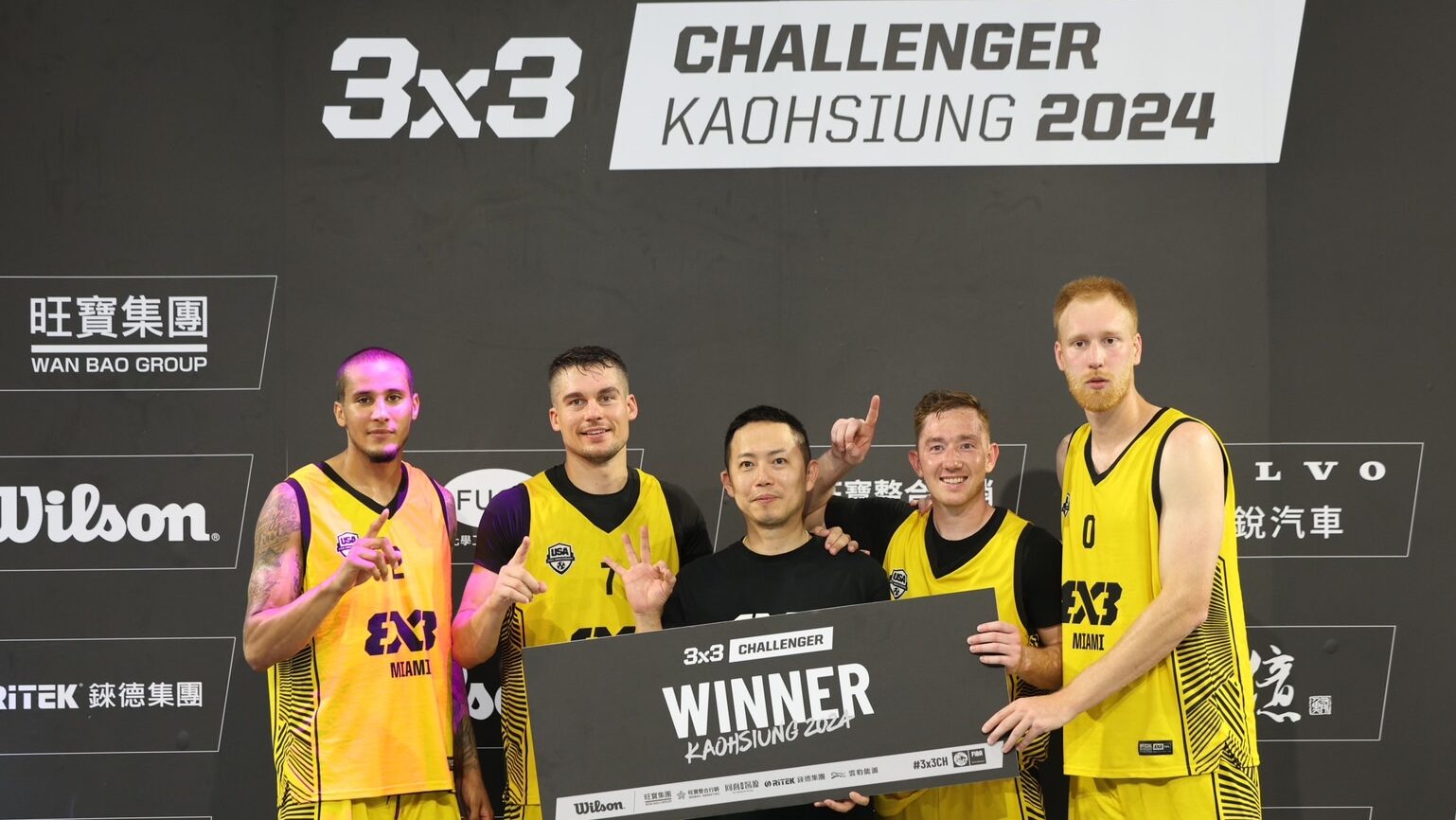
Strategic Planning for the 2028 Los Angeles Olympics
In the process of promoting the development of 3×3 basketball, Michael Wu has consistently regarded the 2028 Los Angeles Olympics as the ultimate goal, striving to bring Taiwan’s 3×3 basketball team to the Olympic stage. This journey is not only a test for the players but also a comprehensive examination of the team and strategic planning:
“Competing in the 2028 Los Angeles Olympics is our long-term goal, and for that, we’ve developed a comprehensive strategy. From player selection and training to ranking improvement, every aspect is carefully planned.”
When it comes to training, Wu emphasises the importance of technical refinement, physical management, and medical support. He notes that the team has already designed a customised training plan to ensure the players’ physical condition is well-maintained during high-intensity matches, minimising the risk of injury. In addition, Wu mentioned that they plan to integrate their own medical expertise to conduct professional medical assessments, addressing nutritional deficiencies or other health issues early on:
“Through medical testing, we can strengthen the players’ physical condition. If they’re lacking any nutrients, we’ll supplement them immediately, preventing problems before they arise. This ensures better health and performance, enhancing muscle endurance and even growth.”
In terms of strategy, Wu places great emphasis on nurturing young talent. He believes that the Olympics is a long-term strategic goal rather than a short-term competition, and thus, it is crucial to continually recruit and develop promising young players to prepare for the Olympics. These young athletes will become the core of the team over the next four years, raising the team’s competitive level and laying the foundation for achieving their Olympic dreams. Wu is confident that the development of this new generation of talent will be the key to Taiwan’s breakthrough on the international 3×3 basketball stage.
Wu firmly believes that with continuous effort and by staying on the right path, Taiwan’s 3×3 basketball team is destined to shine at the Los Angeles Olympics. “Our goal is not just to participate in the Olympics, but to showcase Taiwan’s basketball prowess on the Olympic stage, letting the world see our potential and determination. This is not only the players’ dream but the mission of our entire team.” These precise strategic deployments and comprehensive support systems demonstrate Wu’s passion and vision for Taiwan basketball, paving the way for Taiwan’s 3×3 team to achieve their Olympic dream.
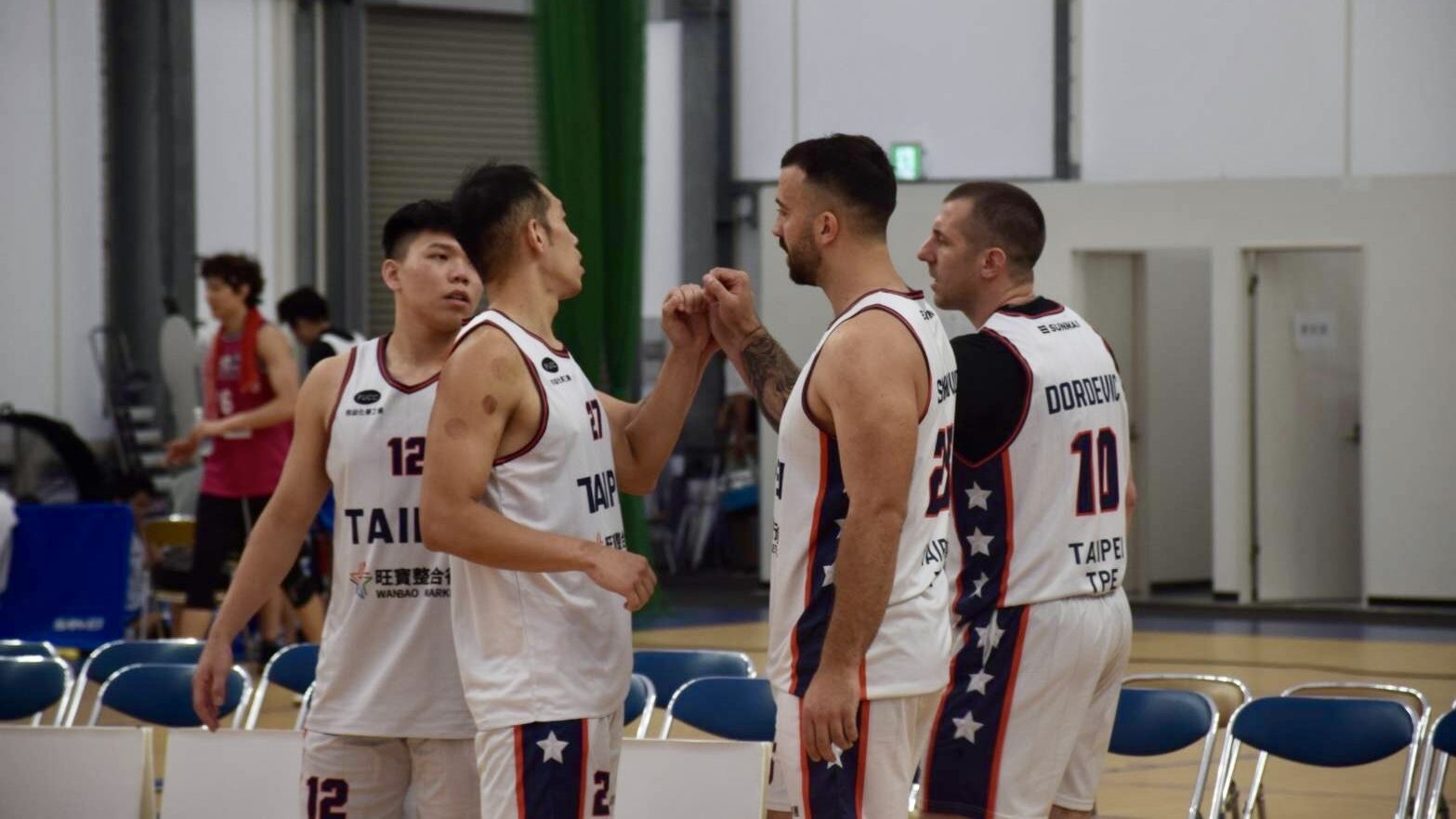
Businesses and Government Join Forces to Elevate Taiwan’s Basketball Culture
In the process of promoting 3×3 basketball, Michael Wu has faced challenges from both the government and businesses. Some government officials and corporate leaders have questioned the connection between the team’s name and the city it represents. In response, Wu argued that the team’s performance on the international stage draws far more global attention, helping to elevate Taipei’s international profile. This kind of exposure, he noted, has a far greater impact than local competitions, effectively putting Taipei on the world map:
“Our team isn’t just competing; every appearance is an opportunity to showcase Taiwan to the world. It’s a unique chance to raise Taiwan’s global visibility, and this is far more valuable than mere sponsorships or advertising. We participate in international competitions not only to compete but to promote Taiwan’s image through action. This cultural export grabs international attention in a way that local games simply can’t, truly allowing the world to understand Taiwan.”
Wu believes that for Taiwanese basketball to achieve greater success internationally, the support of both businesses and the government is crucial. Sports, he stressed, are an essential part of a nation’s overall strength, beyond just economics and military power. Businesses can enhance the influence of basketball through branding partnerships and creative marketing, while also encouraging more young people to get involved in the sport. The government, on the other hand, should provide institutional support, such as considering the elevation of the Sports Administration to a Ministry of Sport, to further prioritise and support athletic development.
To drive the future growth of Taiwanese basketball, Wu calls for collaboration between businesses and the government. Such partnerships, he explained, would not only strengthen athletic prowess but also help create a cultural emblem that represents the spirit of Taiwan, with 3×3 basketball becoming a key voice for Taiwan on the global stage. “The influence of sports goes far beyond the games themselves; it’s a vital tool for showcasing a country’s soft power.” He is confident that with collective efforts, Taiwan’s 3×3 basketball can not only achieve great results in competitions but also demonstrate Taiwan’s innovation and vitality in international cultural exchanges:
“I hope businesses and the government recognise the potential and value of 3×3 basketball and take tangible actions to support the growth of this sport. Through this cooperation, Taiwan’s 3×3 basketball can become a shining card on the international stage, not just for the sake of competition but to tell Taiwan’s story to the world.”
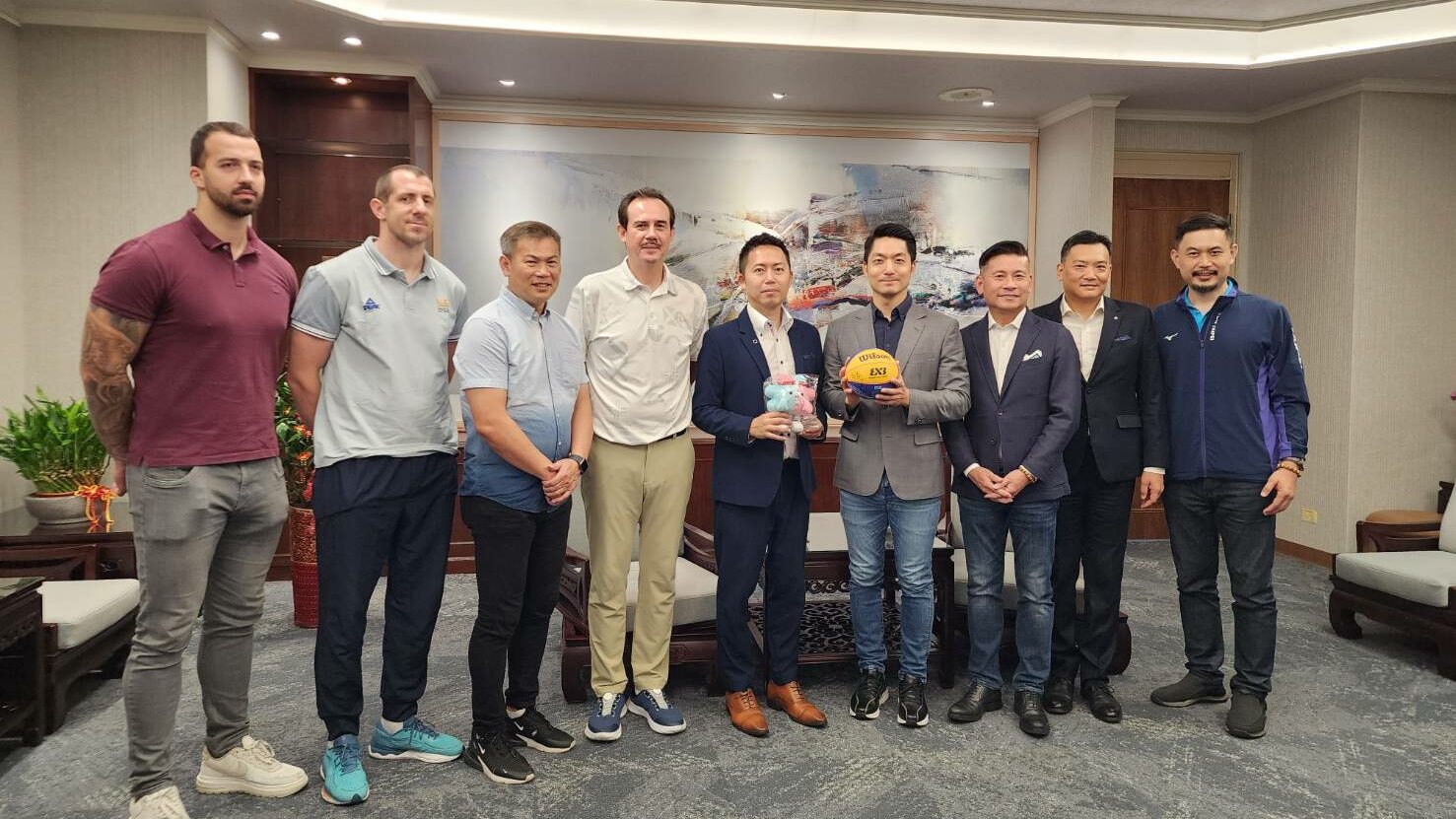
From Transformation to Leadership: TDEA’s Business Transformation Institute Paves the Way for a New Future for Enterprises
In the process of promoting 3×3 basketball on the international stage, Michael Wu emphasises that beyond the team’s strength and strategic planning, support from various sectors is crucial. Wu has been involved with the Taiwan Digital Enterprise Alliance (TDEA) and its “Business Transformation Institute,” which serves as a transformative amplifier that blends tradition with innovation, helping businesses find new growth momentum during key moments of succession and transformation. This has significantly contributed to the development of 3×3 basketball.
“The Business Transformation Institute has played a vital role in our efforts to promote 3×3 basketball. Not only has it provided resources and professional advice, but it has also helped us discover more collaboration opportunities by integrating resources from various fields,” Wu explained. He pointed out that the institute’s support in resource integration has given the team greater confidence in facing challenges.
TDEA’s Business Transformation Institute encourages next-generation entrepreneurs to leverage internal and external entrepreneurial experiences and resources, fostering the integration and development of “first-generation” and “second-generation” entrepreneurs. This model not only offers businesses a growth platform but also acts as an innovation amplifier, guiding companies to find their unique path of transformation amidst change.
As a second-generation entrepreneur himself, Wu also calls on other second-generation business leaders to join this transformative movement. He believes this is not just his individual effort but one that requires collective action:
“I hope other second-generation entrepreneurs can use their influence and join us. This isn’t just about promoting 3×3 basketball—it’s about empowering Taiwanese businesses to unite on the international stage, rallying more support for Taiwan’s basketball and showing the world our strength.”
Wu further emphasised that true leadership lies in resource integration, inspiring teams, and guiding everyone towards a common goal. “Leadership is not just about management and decision-making, but about unleashing the potential of every team member, making them feel like part of a greater vision.” This is precisely the effect Wu hopes to achieve through collaboration with the Business Transformation Institute, attracting more partners to drive the growth of Taiwan’s 3×3 basketball on the global stage:
“We are not just aiming to win every game, but to showcase Taiwan’s strength and spirit to the world. Through the internationalisation of 3×3 basketball, we want to prove that Taiwan not only has a place in global competition but can also become a leader. This is not just a victory for sports, but a victory for Taiwan.”
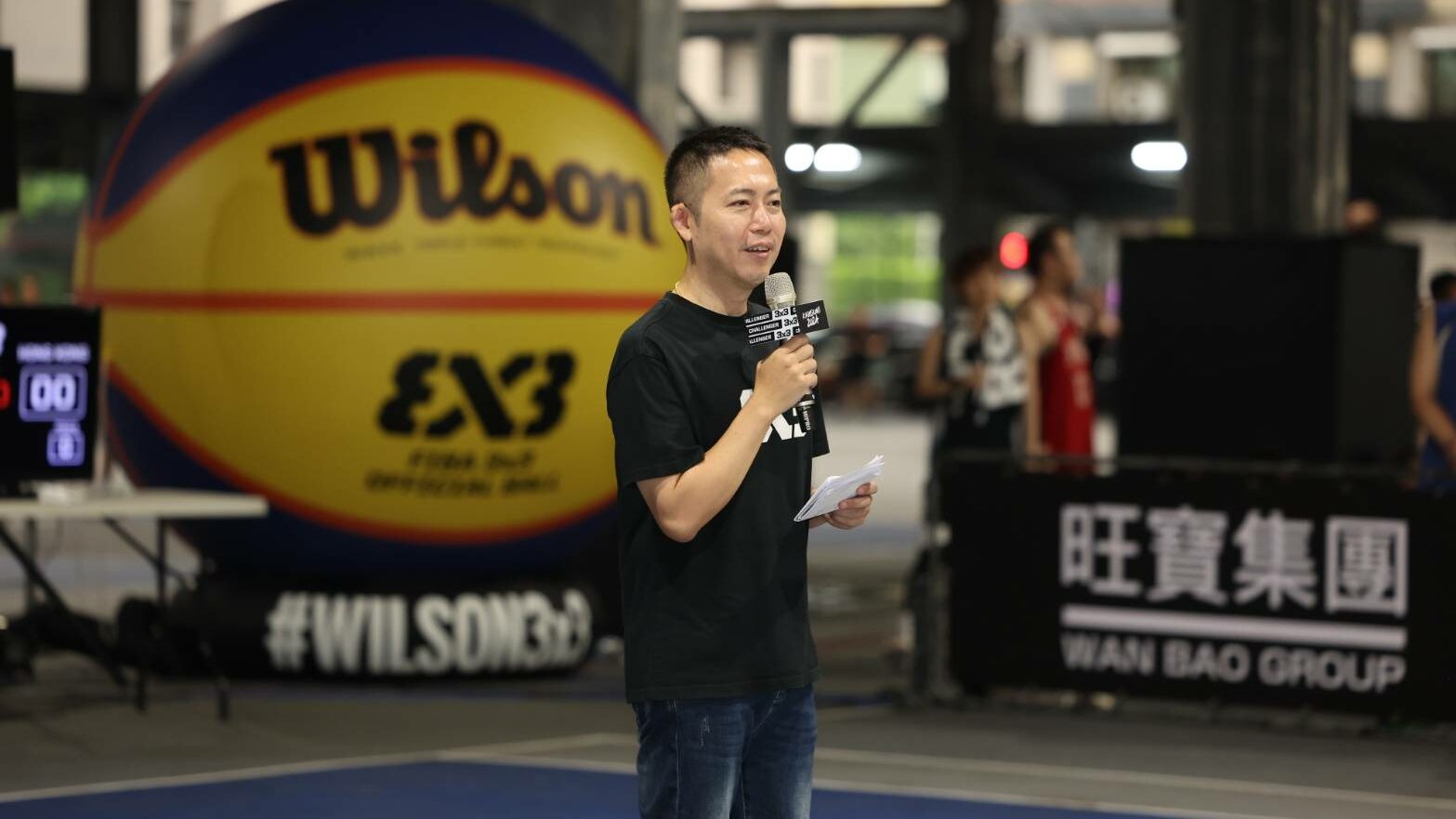
Recommend for you: